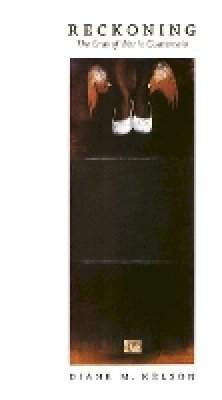
Reckoning: The Ends of War in Guatemala
Diane M. Nelson
Nelson brings together stories of human rights activism, Mayan identity struggles, coerced participation in massacres, and popular entertainment—including traditional dances, horror films, and carnivals—with analyses of mass-grave exhumations, official apologies, and reparations. She discusses the stereotype of the Two-Faced Indian as colonial discourse revivified by anti-guerrilla counterinsurgency and by the claims of duplicity leveled against the Nobel laureate Rigoberta Menchú, and she explores how duplicity may in turn function as a survival strategy for some. Nelson examines suspicions that state power is also two-faced, from the left’s fears of a clandestine para-state behind the democratic façade, to the right’s conviction that NGOs threaten Guatemalan sovereignty. Her comparison of antimalaria and antisubversive campaigns suggests biopolitical ways that the state is two-faced, simultaneously giving and taking life. Reckoning is a view from the ground up of how Guatemalans are finding creative ways forward, turning ledger books, technoscience, and even gory horror movies into tools for making sense of violence, loss, and the future.
Product Details
About Diane M. Nelson
Reviews for Reckoning: The Ends of War in Guatemala
Jennifer Burrell
PoLAR
“. . . Nelson has given us a challenging, rich, creative text, remarkable for the ends, and beginnings, that it generates.”
Emily Yates-Doerr
e-misférica
“[A] lively, compassionate, provocative exploration of experience in postwar Guatemala. Reckoning makes an important contribution to understanding contemporary Guatemala and provides deep insights into the human political/social psychological condition.”
Norman B. Schwartz
Current Anthropology
“[A] unique, powerful vision of Guatemala today. Summing Up: Highly recommended. Upper-division undergraduates and above.”
C. Hendrickson
Choice
“[Nelson’s] elaborate account provides detailed information on important persons, events, and diverse social units, including Maya communities, NGOs, political parties and organizations, the Guatemalan state, the United States and other foreign powers. Her account of salient events that occured during this period reveal her profound and detailed knowledge of recent history in Guatemala, and this alone makes the book invaluable for anyone interested in recent developments in that effervescent country.”
Robert M. Carmack
The Americas
